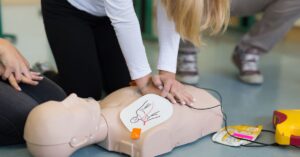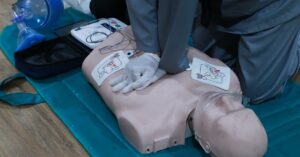Basic Life Support certification serves as a cornerstone of emergency medical response across healthcare settings. For medical professionals, maintaining current certification demonstrates competency in life-saving techniques and may also lead to better career opportunities. Keeping your BLS certification up-to-date guarantees that you have the right skillset and confidence during emergencies. Understanding how often you should renew your BLS certification ensures you remain prepared for critical situations while meeting professional requirements.
Standard Renewal Timeline Requirements
The American Heart Association establishes a two-year validity period for BLS certification. This timeframe applies to healthcare providers, emergency medical technicians, and other professionals requiring certification. The expiration date is clearly marked on your certification card, indicating when renewal is necessary.
Most healthcare facilities track employee certifications and provide reminders for renewal before expiration. However, it remains the individual’s responsibility to maintain their current certification status.
Pre-Expiration Renewal Strategies
Planning renewal before expiration prevents lapses in certification status. Many training centers offer renewal courses starting 60 days before expiration. This window allows flexibility in scheduling while ensuring continuous certification coverage.
Renewal courses typically require less time than initial certification training. These abbreviated sessions focus on skill demonstration and updated guidelines rather than comprehensive instruction. Most renewal courses can be completed in approximately two to three hours, making scheduling more manageable for busy professionals.
Factors Affecting Renewal Timing
Workplace policies may influence the timing of renewals beyond standard requirements. Some healthcare facilities require certification renewal every 18 months rather than the full two-year period. Emergency response teams might mandate more frequent updates to maintain peak readiness levels.
The timing of renewal can also depend on the professional licensing boards, as they sometimes specify certification requirements that differ from standard timelines. Nurses, paramedics, and other licensed professionals should verify their specific renewal requirements to ensure compliance with both certification bodies and licensing authorities.
Consequences of Expired Certification
Expired BLS certification creates immediate professional complications. Healthcare employers typically restrict the duties of staff with lapsed certifications, which can potentially affect patient care responsibilities. Emergency response team members may also face temporary suspension from active duty until renewal completion.
Maintain your credentials and enhance your expertise with our convenient, in-depth AHA BLS Certification course. This program is designed to equip you with the essential skills and confidence necessary to respond effectively in critical emergency situations. Whether you’re refreshing your certification or learning for the first time, our course ensures you’re fully prepared to handle life-saving scenarios with professionalism and poise.
Maintaining Professional Readiness
Regular certification renewal is essential for maintaining and enhancing professional development in the healthcare setting. Knowing how often you should renew your BLS certification depends on keeping the standard two-year cycle while considering workplace requirements and professional standards. Although it may seem inconvenient, consistent renewal ensures readiness for emergency situations and demonstrates a commitment to patient safety and professional excellence.







